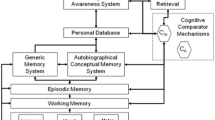Abstract
This study was designed to examine and contrast cognitive effects (explicit memory and access to semantic knowledge) of the benzodiazepine Halcion (triazolam) in ten normal volunteers and ten cognitively unimpaired detoxified alcoholics. The two groups were indistinguishable from one another under placebo conditions on all measures of cognitive functioning. Under Halcion test conditions (0.375 mg PO), both groups were about equally impaired in their recall of to-be-remembered information. However, alcoholics, were more likely to recall information that they were not asked to remember (intrusion errors) on all measures of explicit remembering. Alcoholics also generated relatively uncommon (low frequency) responses from semantic memory, rather than common, categorically related associations in response to stimuli such as types of vegetables, flowers, and fruit following the administration of Halcion, but were not different from normal volunteers in the types of responses generated under placebo conditions. These findings suggest that a drug challenge that simulates many of the effects of acute alcohol administration induces alcoholics to think and remember differently (qualitatively) from normal volunteers.
Similar content being viewed by others
Author information
Authors and Affiliations
Additional information
Received: 7 July 1997 / Final version: 22 September 1997
Rights and permissions
About this article
Cite this article
Weingartner, H., Rawlings, R., George, D. et al. Triazolam-induced changes in alcoholic thought processes. Psychopharmacology 138, 311–317 (1998). https://doi.org/10.1007/s002130050676
Issue Date:
DOI: https://doi.org/10.1007/s002130050676



